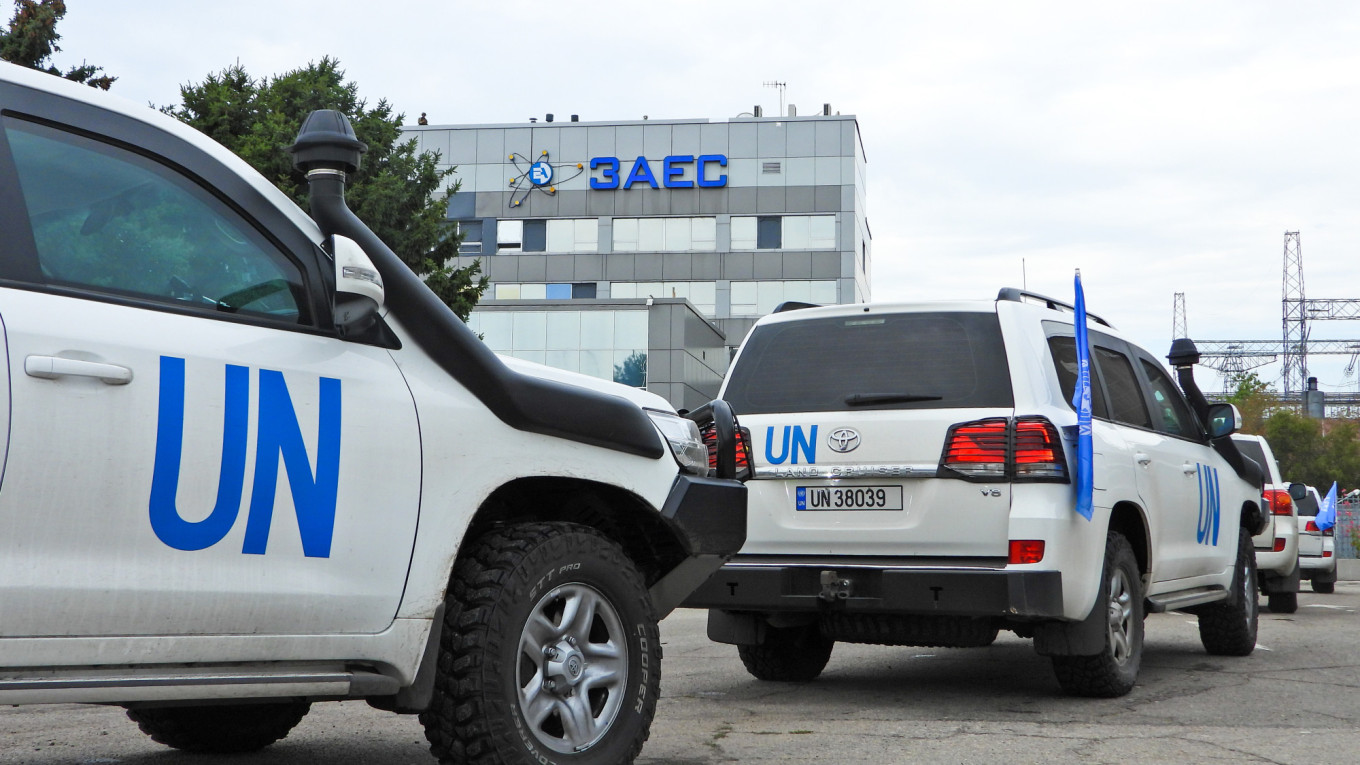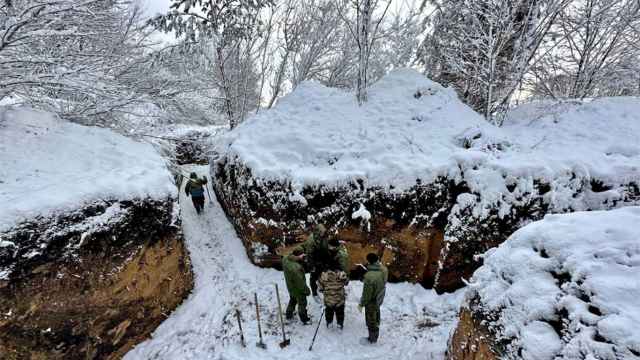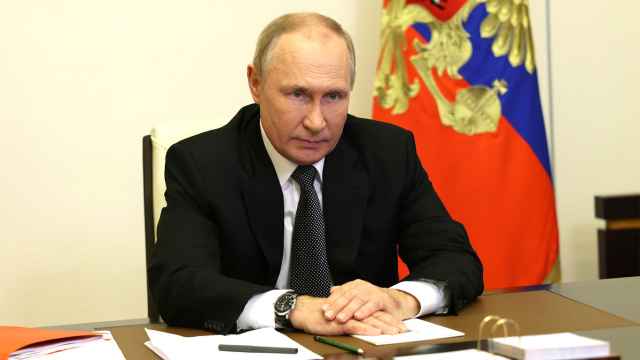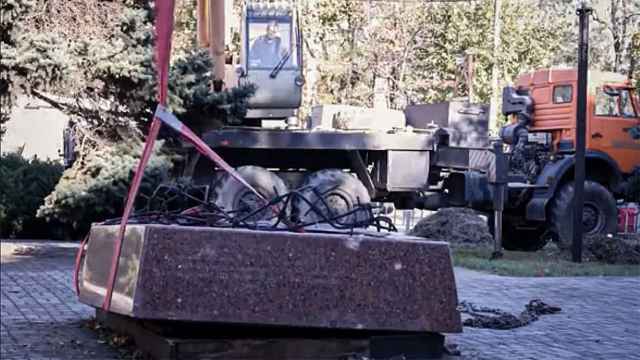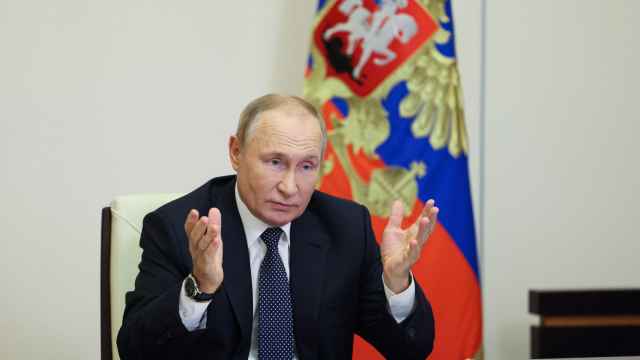Russian President Vladimir Putin on Tuesday told UN nuclear agency chief Rafael Grossi he was "open to dialogue" on Zaporizhzhia nuclear power plant in territory controlled by Moscow's forces in southern Ukraine.
In televised comments with Grossi ahead of their meeting in Saint Petersburg, Putin told the IAEA chief he was "ready to discuss all issues of mutual interest or cause for concern, for example, regarding the situation around the Zaporizhzhia power plant" and said he was "open to this dialogue."
A statement by the IAEA released after the meeting said that Grossi was due to meet with Ukrainian President Volodymyr Zelensky in Kyiv "later this week" for further talks regarding Europe's biggest nuclear power plant.
Grossi had met Zelensky last week for discussions on setting up a nuclear safety and protection zone around Ukraine's Russian-held Zaporizhzhia plant.
In recent weeks, Grossi had been "engaging in intense consultations with both Ukraine and the Russian Federation to agree and implement" such a zone "as soon as possible," the IAEA statement said.
According to Grossi, the situation around the Zaporizhzhia nuclear power plant has "become increasingly dangerous, precarious and challenging," with frequent military attacks posing threats to nuclear safety and security.
"We can’t afford to lose any more time. The stakes are high," Grossi said, adding that everything needed to be done to avoid a nuclear accident.
Moscow and Kyiv have traded blame for months over shelling near the Russian-held facility that sparked fears of a nuclear disaster.
A Message from The Moscow Times:
Dear readers,
We are facing unprecedented challenges. Russia's Prosecutor General's Office has designated The Moscow Times as an "undesirable" organization, criminalizing our work and putting our staff at risk of prosecution. This follows our earlier unjust labeling as a "foreign agent."
These actions are direct attempts to silence independent journalism in Russia. The authorities claim our work "discredits the decisions of the Russian leadership." We see things differently: we strive to provide accurate, unbiased reporting on Russia.
We, the journalists of The Moscow Times, refuse to be silenced. But to continue our work, we need your help.
Your support, no matter how small, makes a world of difference. If you can, please support us monthly starting from just $2. It's quick to set up, and every contribution makes a significant impact.
By supporting The Moscow Times, you're defending open, independent journalism in the face of repression. Thank you for standing with us.
Remind me later.


